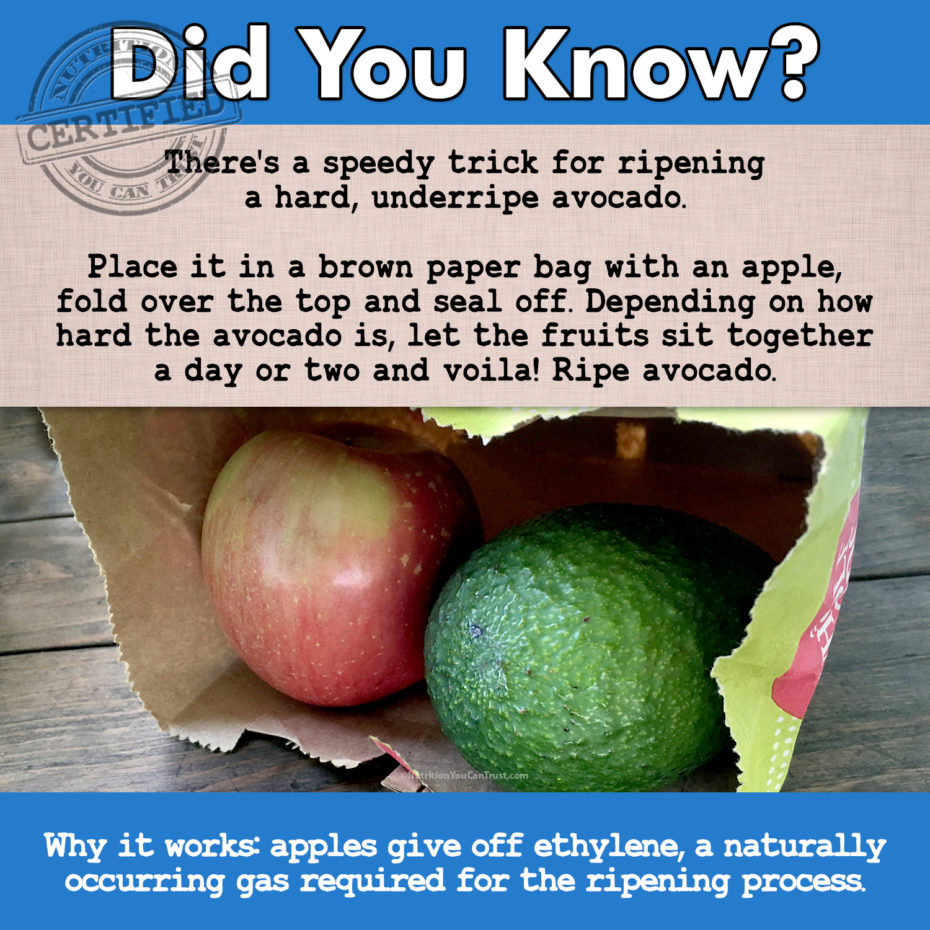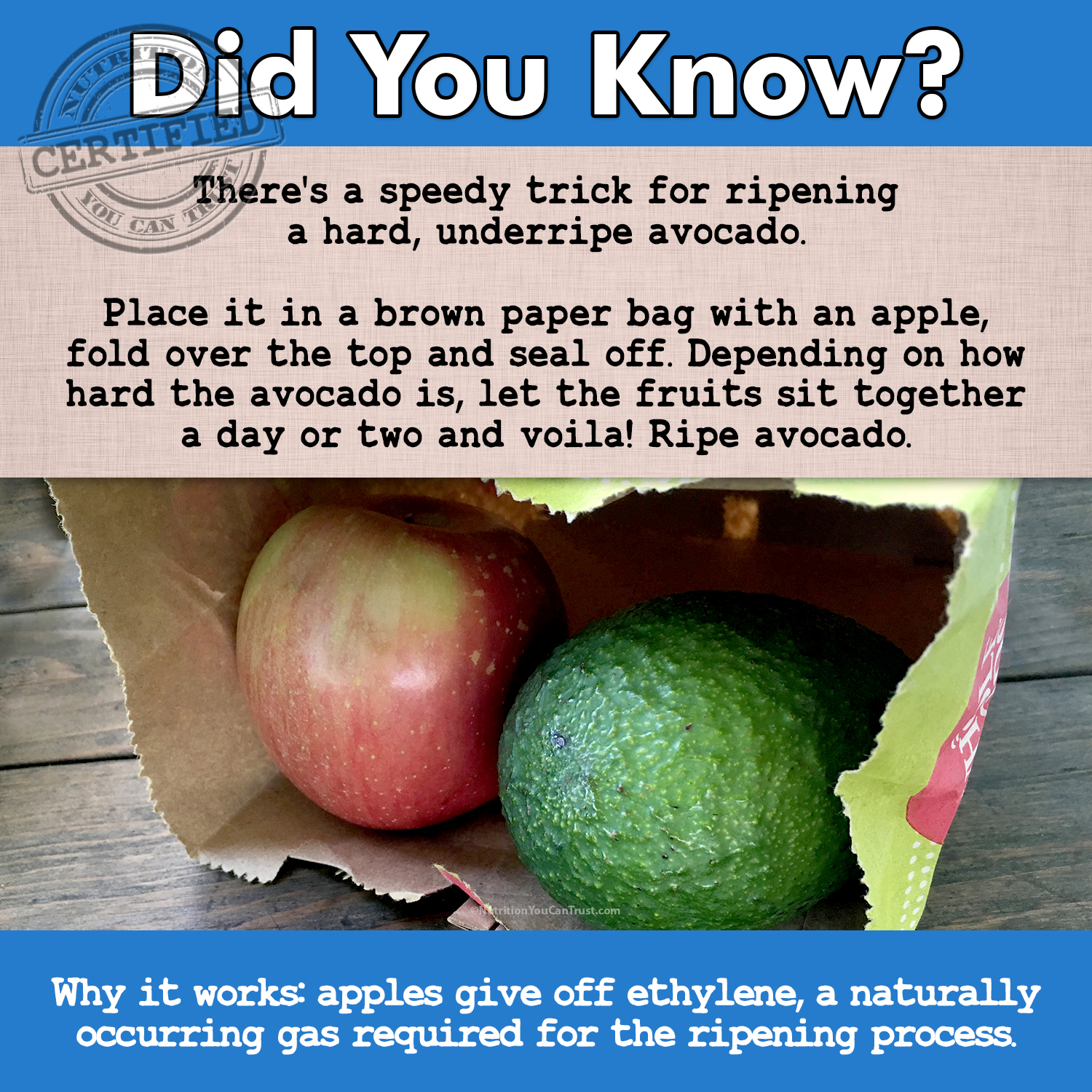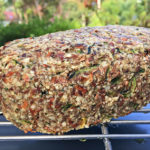A number of fruits and vegetables produce a natural plant hormone called ethylene. It’s released as a gas and essentially tells the fruit or vegetable to begin ripening. Some fruits and vegetables are high ethylene producers, where as some are sensitive to ethylene. Ideally, we want to keep these foods separate from one another to extend shelf life and cut back on our produce becoming over ripe and/or spoiling (we hate wasting food and money, right?).
That said, the flip side is we can use ethylene-producing foods to ripen produce faster. For example, see this post on how to ripen an avocado faster so you’re not waiting around as long for those hard green dinosaur eggs to be ready to eat.
Here are some common ethylene-producing foods (alphabetical order):
- apple
- banana (ripe)
- blueberries
- cantaloupe
- figs
- green onion
- grapes
- kiwi
- mango
- nectarine
- peaches
- passion fruit
- pear
- plums
- potatoes
- tomatoes
and some common ethylene-sensitive foods:
- asparagus
- bananas (unripe)
- broccoli
- blackberries
- brussels sprouts
- cabbage
- carrots
- cauliflower
- chard
- cucumbers
- eggplant
- garlic
- green beans
- kales
- leeks
- lettuce
- onions
- peas
- peppers
- raspberries
- spinach
- squash
- strawberries
- sweet potatoes
- watermelon
Click here to Pin and save this Did You Know? image and the lists above for easy reference later!






















